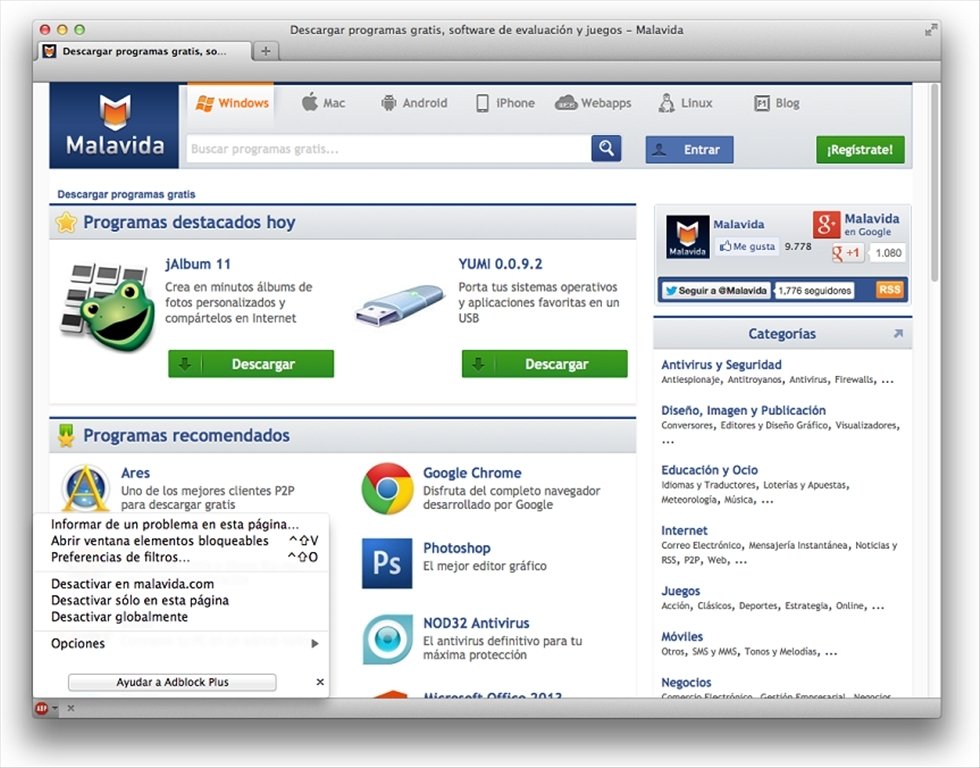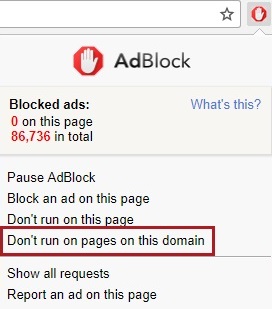

- #Adblock plus for mozilla how to
- #Adblock plus for mozilla software
- #Adblock plus for mozilla download
- #Adblock plus for mozilla free

#Adblock plus for mozilla download
2 add-ons (Google Toolbar and Memory Fox) weren’t tested because they have no stable version for download on.9 add-ons that weren’t tested because of being platform-dependent ( bug 648225).It also shows the standard deviation for each test and flags results that are affected by issues known so far. This shows both the absolute slowdown values as well as percentages for each operating system, along with a link to the corresponding logs. I got tired of digging through logs so I created an overview page for AMO’s add-on performance testing results. If you can’t peel yourself away from Google, Simple Search cuts the advertising cruft from Google search results to show you just the results for what you searched for.Adblock Plus and (a little) more Overview for Mozilla's add-on performance measurements You may still need to visit Google for some searches, but the less you use it, the better.

#Adblock plus for mozilla how to
Here’s how to change your search engine on Chrome or Firefox. Alternatives like DuckDuckGo and Startpage work well, and they don’t store your personal information or search data.

VPNs can also change your location and IP address, making it more difficult for other parties to track you over time (though an untrustworthy company may still leak or monitor that data). This prevents your internet service provider from seeing your online activities.
#Adblock plus for mozilla software
Dozens of other lower-profile browsers exist, but few get the security updates and support that most of us need in the software we use all day. The Tor Browser is the go-to for anonymity, especially in censored countries, but it’s unusable for most people as a daily browser.
#Adblock plus for mozilla free
Brave is one of the more popular privacy-first browsers, but even it isn’t free of privacy-related controversies. Edge is based on Chromium and will work with the bulk of the Chrome extensions in this article, we haven’t tested it thoroughly. I’ve included links for both Chrome and Firefox, along with alternatives to our favorites, if they exist.Īs for other browsers, Apple’s Safari isn’t bad when it comes to privacy, but it lacks wide support for popular browser extensions. Regardless of which browser you use, a pack of extensions can increase your privacy by decreasing your exposure to trackers, as well as have the welcome side effect of boosting your security. (Most Chrome extensions will also work with Microsoft Edge, Brave, Opera, and Vivaldi, though we haven’t fully tested them.) Of the two, I recommend Firefox if you prioritize privacy, as it’s much more focused on privacy out of the box compared with Chrome. Not all browsers offer the exact same extensions, but Google Chrome and Mozilla Firefox are the two most popular browsers, and the ones I focus on here. But in exchange for the occasional slight headache, companies will have a harder time tracking what you do online. Sometimes a browser extension might cause a website to display text strangely, prevent embedded images or tweets from loading on a page, or remove the little social media buttons that make it easy to share an article. Privacy almost always comes at the cost of usability. But browser extensions are simple, generally free add-ons that you can use to slow down or break this type of data collection, without completely ruining your experience of using the internet. Everything you do online-from browsing to shopping to using social networks-is tracked, typically as behavioral or advertising data.


 0 kommentar(er)
0 kommentar(er)
